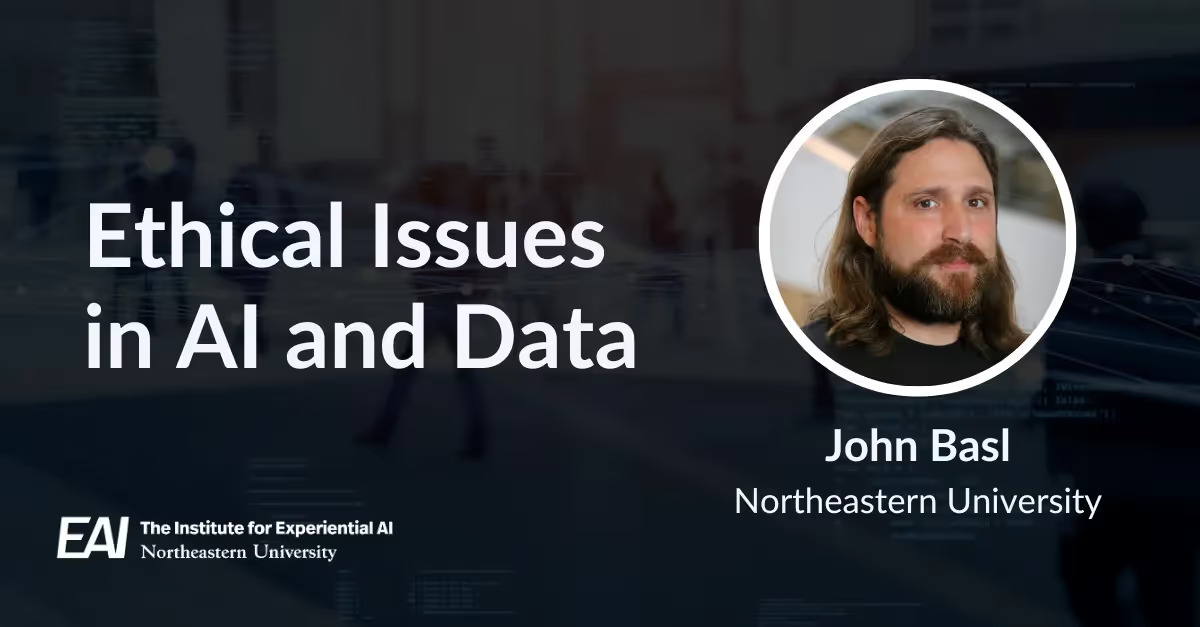New Study Finds ChatGPT Makes User-Submitted Content Worse

Some of the world’s most popular websites rely on their users to submit feedback, ratings, answers to questions, and more. But will generative AI tools like ChatGPT, which make such content generation simple, destroy that model?
A new working paper by Institute core faculty member and associate professor at Northeastern University’s D’Amore-McKim School of Business Yakov Bart and Samsun Knight, assistant professor in the Rotman School of Management at the University of Toronto and research affiliate of DATA Initiative at Northeastern, found that use of ChatGPT significantly decreased the quality of user submissions on Amazon and Yelp. The study also found that using generative AI increases the quantity of content per reviewer.
Although the researchers cautioned that more work needs to be done to understand the full effects of ChatGPT, they say the study should serve as a warning to online platforms that rely heavily on user-submitted content.
“This technology has changed the cost of producing content, and without any safeguards or real considerations around how to adapt to that, it does seem like businesses have left themselves vulnerable to being kind of flooded,” Knight says.
The study also offers evidence for how websites could avoid a plunge in the quality of their content: expert reviewers did not exhibit the same degree of decline in quality as non-experts, suggesting systems like Yelp’s “Elite” reviewer program may help mitigate ChatGPT’s negative impact.
The researchers hope their work alerts companies to the potential downsides associated with the exploding popularity of generative AI.
“I think we’re sounding the alarm that we need to do more to encourage the responsible use of ChatGPT and to change how we’re gatekeeping,” Knight says. “I think a lot of our systems for evaluation and ensuring quality online content were developed in an era where it wasn’t so incredibly low cost to flood the internet. We’re hoping our work will get people to take [content quality decline] more seriously as a potential downside risk.”
Diving Deeper Into ChatGPT’s Effects
Bart says the study aimed to create a more granular understanding of ChatGPT’s effects on internet content.
“A lot of people say ChatGPT improves the productivity of workers,” Bart says. “It’s a claim that’s been made both by industry observers as well as by researchers. We wanted to understand what exactly happens when people get access to ChatGPT, because there are different ways to look at productivity in terms of volume and in terms of quality.”
For the study, the researchers analyzed Yelp reviews of restaurants in San Francisco and Amazon product reviews from the “Camera, Photo, and Video” category. They then used a ChatGPT detection tool called ZeroGPT, and compared reviews posted before and after ChatGPT’s release.
To assess the quality of reviews, the researchers measured the “useful” or “helpful” votes each one received.
They found the use of generative AI brought a 15.5 percent decrease in useful votes on Yelp and a 14.8 percent decrease in helpful votes on Amazon. The decreases were driven mainly by non-expert reviewers, and much less so by “Elite” reviewers on Yelp and members of the “Vine Voice” program on Amazon.
“The latter group are reviewers who are essentially evaluated on the quality of their content,” Knight explains. “They are more invested in their reviewer identity, so it points a way forward, where structures that incentivize actually making a good review or structures that include some baseline level of quality evaluation negate the quality declines — and there were still productivity gains from the use of this technology.”
Avoiding Quality Declines
While supporters of generative AI argue it will lead to huge leaps in productivity, the new study paints a more nuanced picture.
“Proponents of AI want the public to support these new tools and for everyone to be as excited as they are, but they need to be sure that they’re also taking into consideration these potential costs and putting in different incentive structures to ensure it doesn’t deteriorate the quality of our internet experience,” Knight says.
The researchers encourage online businesses to adopt systems that ensure content meets a minimum quality standard before it is published. Until then, websites may have to grapple with lower-quality content that could damage their user experience and, ultimately, their bottom lines.
“I think companies will wake up to this problem on their own,” Knight says. “Eventually they’ll realize people just don’t like the reviews posted on their online platforms as much. But, hopefully, they’ll be able to head off the worst of it by responding to this research.”
Read the full working paper here and learn more about our AI faculty.




